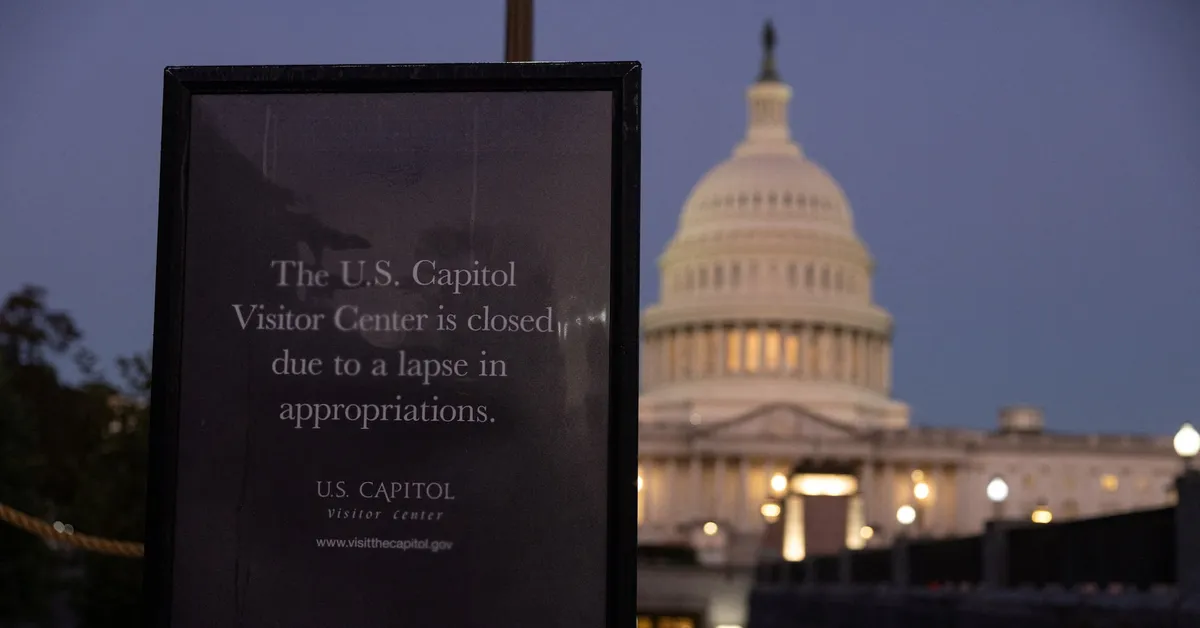
As the government shutdown enters its fifth day, the Trump administration is preparing for potential mass layoffs of federal workers if negotiations with congressional Democrats fail to progress. A senior White House official indicated on Sunday that if discussions remain stagnant, President Donald Trump may initiate layoffs, a move that has raised significant concerns among federal employees and their advocates.
White House National Economic Council Director Kevin Hassett appeared on CNN's State of the Union, expressing cautious optimism that Democrats may reconsider their position in order to avert the costly shutdown and the layoffs threatened by White House budget director Russell Vought. Hassett emphasized that the administration is hopeful for a resolution when negotiations resume at the beginning of the week, stating, “If the president decides that the negotiations are absolutely going nowhere, then there will start to be layoffs.”
President Trump has characterized the anticipated job cuts as Democrat layoffs, asserting that any federal employee affected by these layoffs would be due to the Democrats' refusal to negotiate. “Anybody laid off that’s because of the Democrats,” he told reporters, highlighting the administration's strategy to shift blame onto the opposing party.
Despite the ongoing shutdown, which commenced on October 1, the start of the federal fiscal year 2026, there have been no significant signs of negotiations between congressional leaders. Senate Democrats rejected a short-term funding measure that would have kept federal agencies operational through November 21. Senate Democratic leader Chuck Schumer criticized the lack of dialogue, stating, “They've refused to talk with us,” and emphasized that a resolution would require further discussions involving Trump and the congressional leaders.
The Democrats are advocating for a permanent extension of enhanced premium tax credits to assist Americans in purchasing health insurance through the Affordable Care Act (ACA) and are seeking assurance that the White House will not unilaterally revoke any spending agreements. Senate Majority Leader John Thune expressed willingness to address these concerns but insisted that Democrats must first agree to reopen the federal government.
During the ongoing discussions, President Trump also expressed interest in healthcare reform, particularly regarding the ACA, commonly referred to as Obamacare. He stated, “We want to fix it so it works. Obamacare has been a disaster for the people, so we want to have it fixed so it works.” This statement signals the administration's intent to incorporate healthcare reform into broader negotiations aimed at resolving the shutdown.
On Monday, the Senate is scheduled to hold its fifth vote on a stopgap funding bill that has already passed the Republican-controlled House of Representatives, as well as a Democratic alternative. However, neither measure is expected to garner the 60 votes required to advance. With a slim 53-47 majority and one Republican against the House funding bill, Republican leaders face a significant challenge in securing the necessary bipartisan support, having only attracted three Democrats to break ranks so far.
John Thune emphasized the urgency of the situation, stating on Fox News’ Sunday Morning Futures, “It's open up the government or else, that’s really the choice that’s in front of them right now.” As both parties grapple with the impasse, the looming threat of layoffs and the impact of the government shutdown continue to hang over federal employees and their families.
As the situation develops, it remains crucial for both parties to engage in meaningful dialogue to resolve the shutdown and prevent further disruptions to federal services and employees’ livelihoods.